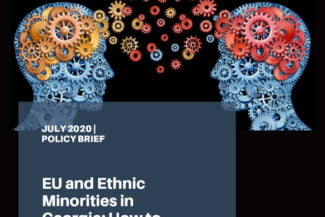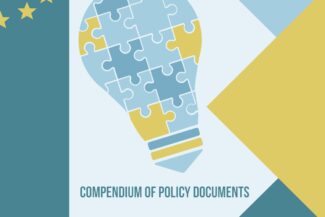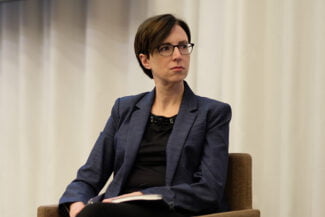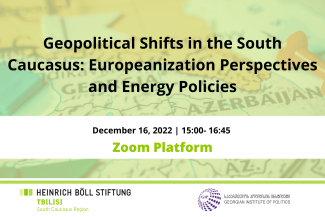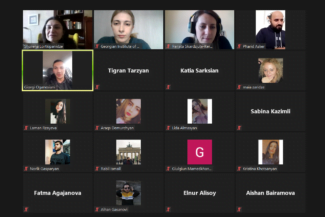13-11-2020
Authors
Giorgi Sordia, Ivane Chkhikvadze, Nino Marjanishvili, Kornely Kakachia, Elene Panchulidze, Natia Daghelishvili
In terms of ethnicity, Georgia is one of the most diverse countries in Europe. According to the latest population census held in 2014, ethnic minorities make up approximately 13.2% of the population. The largest groups among them include Azerbaijani population (6.2%) and Armenian population (4.5%), densely populated in the Southern part of the country (Kvemo Kartli and Samtskhe-Javakheti region). The remaining ethnic minorities do not make up compact settlements and are populated across different regions and urban centers. The existence of ethnic minorities and culturally diverse communities became one of the challenges for the Government of Georgia, while the major problem lies in the implementation of adequate and effective civil integration policy. This policy determines the extent to which the Georgian political organism manages to establish a state based on inclusion, collaboration and pluralism. At the same time, it needs to be noted that protection of ethnic minority rights and their full integration into the society is one of the important aspects of Georgia’s European policy. This approach is clearly reflected in Georgia’s cooperation documents with other European institutions. Ethnic minority related topics take an important place in the Association Agreement signed with the EU, as well as among the commitments taken by Georgia within the framework of Council of Europe and OSCE. Especially important among them is the Framework Convention for the Protection of National Minorities that establishes legally binding mechanisms for the signatory states and therefore represents the primary international mechanism for the protection of minority rights. Georgia, with European orientation being the primary political priority, is obliged to implement programs to ensure inclusion and integration of ethnic minorities. This is reflected in the establishment of reporting mechanisms with relevant European institutions and employment of internal legal mechanisms oriented at identifying the needs of ethnic minorities and implementing required measures for ensuring their integration. The National Concept for Tolerance and Civil Integration and action plans have been in place since 2005 to reach this objective. The Concept is focused on meeting the following targets: ensuring equal and comprehensive participation [of minorities] in civil and political life; equal social and economic conditions and opportunities; providing quality education and improving the knowledge of official language; preserving the culture of ethnic minorities and guaranteeing tolerant environment. Despite this, however, awareness on Georgia’s European policy as well as programs related to minorities is extremely low among ethnic minorities living in Georgia, which is negatively reflected on country’s security and integrating European values within the society. This challenge determined the need of creating the following training manual that aims at raising awareness on European Union among ethnic minorities. Training material includes theoretical, as well as practical knowledge to enable the population to receive benefits provided by the Association Agreement signed between Georgia and the EU. The first topic presents the theoretical framework of European policy of European Union and Georgia and covers sub-topics such as Europeanization of Georgia’s foreign policy, as well a accompanying challenges and prospects, EU-Georgia cooperation formats and their essence. The second topic concerns the role and rights of ethnic minorities within Georgia’s European policy. The third topic unites mostly practical matters on how the Georgian citizens can benefit from free trade with the EU, visa free travel and educational exchange programs.
View Training Manual in Azerbaijan language
View Training Manual in Armenian Language
The following manual was written within the framework of Erasmus + Jean Monnet Project “Promote and Act for Europe”. The project aims at promoting discussion on the EU among ethnic minority groups in Georgia, specifically by raising the awareness on the European integration.




